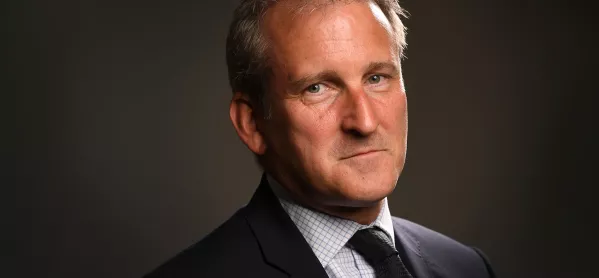Education secretary Damian Hinds has admitted to being concerned about the effects of social media on his three children.
Mr Hinds today announced an increase in support projects in schools through which children would learn about the impact of social media on their mental health.
He also visited Hayes School in Bromley, south-east London, and joined children in with a classroom mindfulness exercise, which included guided meditation.
He said: “We were talking in the group just now about regulating emotions and how you stop frustration building into anger, and anger into rage.
“And actually, I guess for me with my children, I’m going to try harder to make sure we talk about that, but also make sure I set the right example, so that you keep any sort of bad emotions at the lowest possible level.”
He added: “On the back of an experience like we’ve had today, I inevitably am going to think differently about how I talk to my own children about some of this stuff and I think that’s a great privilege I have in my job.
“I think it’s useful actually for parents in general to know more about some of this stuff.”
Speaking on BBC Breakfast this morning, he said that while his children were “too young for it to be a paramount concern”, there were now “different and new pressures on kids - and social media is absolutely at the top of that list”.
Up to 370 schools in England will trial programmes to support pupils’ mental health, including mindfulness sessions and classes with specially trained teachers.
Mr Hinds said he expected companies such as Facebook to control what children could see, amid a “renewed focus” on the negative effects of social media after the father of 14-year-old Molly Russell - who took her own life in 2017 - said Instagram “helped kill my daughter”.
The teenager had viewed pictures on Instagram that glorified self-harm before committing suicide.
Mr Hinds said firms were “very, very clever at what they do, very clever at targeting, very clever at the way they do advertising, very clever at the way they can tailor content”.
He added: “I want that cleverness put to good social use to make sure that children are not being exposed unnecessarily to, you know, material which at an already vulnerable time can be incredibly harmful.”




